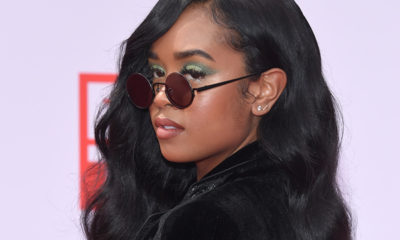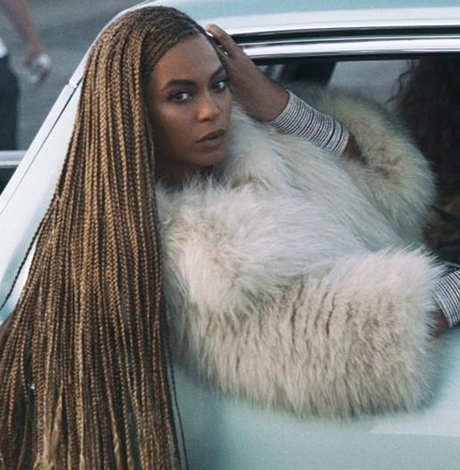Music & Concerts
‘Blue Hearts’ beating: an interview with Bob Mould
Gay musician brings latest tour to Annapolis
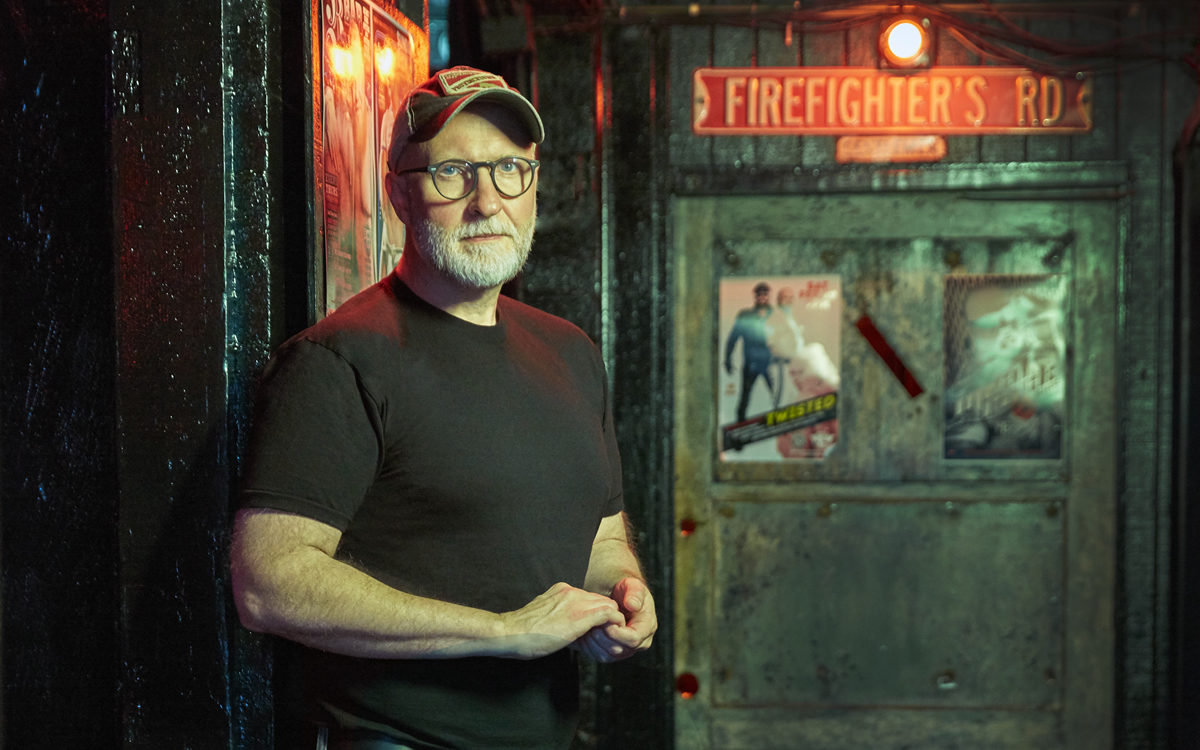
If gay modern rock legend Bob Mould isn’t the hardest-working man in music, he’s definitely one of them. To prove that point, he’s wasted no time in following up 2019’s aptly titled “Sunshine Rock” with the somewhat bluer “Blue Hearts (Merge).” The album is blue in terms of its sexual content (check out “Leather Dreams”) as well as in the liberal political messaging in songs such as “American Crisis,” “Next Generation” and “Heart on my Sleeve.”
As always, the songs are delivered in his trademark crunchy and blazing guitar rock style, with Mould backed by longtime bandmates Jason Narducy on bass and Jon Wurster on drums. I had the pleasure of speaking with Bob about Blue Hearts and the Distortion box sets.
BLADE: Blue Hearts opens with “Heart on my Sleeve,” which begins with the lines, fittingly enough for right now, “The left coast is covered in ash and flames/keep denying the winds of climate change.” The song was written and recorded long before the disastrous wildfire season. How does it feel to you when you listen to or perform that song now?
BOB MOULD: You can’t write this stuff [laughs]. When I started gathering ideas for this record, it was with the idea of being more of a journalist. Trying to make my thoughts known, these are the things that appeared. Specifically, on that line, we’ve been having years of fires out here. Now, it’s just so much worse. They tried to tell people this might happen, but I guess it wasn’t that important to the government to think about climate change until it was too late. So here we are.
BLADE: Has living in California heightened your awareness of the dire state of environmental issues and in what ways do you hope to make an impact?
MOULD: For the better of the last four years I was in Berlin, Germany, where we like to think that Germany and Europe is way more progressive. But even in Germany, coal is such a motivator over there, and the auto industry is so important. They’ve got issues with (gas pipeline) Nord Stream 2 with the Russians right now. I guess being back in California since November of 2019, I think I have a heightened awareness all the way across the board, not only how climate change is affecting the West Coast, but how the sensationalist mainstream news media, news as entertainment, has affected the psyche of the country and created such great division. For me, the juxtaposition is that in Germany, news is mainly still news. It’s not exciting. There’s nothing titillating about it. It’s just news, which is what news should be. Being back here, I think the over amplifying of things here has created beyond an echo chamber, almost canceling out truth, which is nutty to be thinking about at eight in the morning when I can’t even breathe outside.
BLADE: “Next Generation,” which follows “Heart on my Sleeve,” is also prescient, with the lines “Please pay attention/Take to the streets for your rights,” especially in light of the Black Lives Matter movement’s rise to prominence following the murder of George Floyd and others. Would you agree that the timing of the release of “Blue Hearts” is extraordinary?
MOULD: It was a little unnerving. In life and, for lack of a better term, in entertainment and the arts, timing is key to things. When I set out to write the record it was just a general impression, speaking on 59 years on this planet and seeing what we as people actually need to do. Such as turning away from sensationalist force-fed media and talking to our neighbors, getting out on the street, protesting. Being in Germany, I don’t think a single week went by where I did not stumble into an organized protest that would take over the main streets of certain neighborhoods in Berlin. It was accepted behavior. To go from years of that and to come back here, writing these words was sort of a reminder to people that this is what we did in America in the `60s. This is not a bunch of radical, left extremists, who are going to loot Bergdorf Goodman. That’s not the intent when people take to the streets for their rights. What I just described is actually looting, which is different [laughs].
BLADE: It’s ironic, don’t you think, that the some of the people who were out there protesting in the streets in the ‘60s, have now, in their dotage, become so conservative, even going so far as to support Trump?
MOULD: It sure feels like that could be the case. I don’t have hard evidence, but I would suggest you may be right [laughs].
BLADE: It’s frightening, because these are the original hippies who are upset about protests.
MOULD: I think people protest when they feel like they’ve lost their voice or they have no means. Means being that they don’t have a large stake in the stock market, which the president speaks about when he says, “I didn’t want to cause panic.” Meaning panic on Wall Street. I worry, because my job is to observe the world through my oddly shaped glasses [laughs] and just report back on what I remember from being a 21, 22-year-old kid who had absolutely nothing but a band and a guitar and an amp with which to do things. Maybe these people who used to protest when they had nothing, once people get means, once people are invested, maybe they lose sight of the plight of the common person.
BLADE: When I interviewed gay writer David Leavitt about his novel “Shelter in Place,” we talked about the parallels for gay men when it comes to the AIDS crisis and the COVID-19 pandemic, similarities including Republicans being in power and the undue influence of evangelicals. “American Crisis,” the blistering first single from “Blue Hearts” shares a similar sentiment. Do you think gay men could teach the rest of the world how to survive a plague, both viral and extremist?
MOULD: I think David is illuminating what I think is a historical parallel, which you just can’t deny. Whether America’s ready to listen to older gay men beyond caricatures on network television, I don’t know. If they are, there are things we can tell them. For me personally, as a young gay man in the `80s, it sort of crushed my development, but I realized that I had to protect other people so I had to do certain things for 35 years until PrEP came along. Why was it not a problem for me for all those years, yet when you ask someone why they don’t wear a mask, it’s because it’s their liberty. What if I had been that cavalier?
BLADE: Right. It was such a simple thing for us to realize that to save our own lives, and the lives of others, you put on a condom, you relearn how to have sex. There’s just no comparison to putting on a mask.
MOULD: Yes, because this is just something that everybody’s doing on their face. When you’re asking people to make emotional sacrifices in moments of intimacy, I think that’s a little bit heavier than having a mask on your doorknob so you put it on your face when you leave your dwelling [laughs].
BLADE: The activist aspect of the album is reflected in that you donated the proceeds from the “American Crisis” single to OutFront Minnesota and Black Visions Collective when it was released a few months ago. Why were those two organizations chosen?
MOULD: That was a split choice. I chose the LGBT group in Minnesota because a lot of the record, as you have seen, speaks from an older gay male perspective. Merge Records donated its half to the Black Lives Matter related situation that was going on in Minnesota. We mutually said that this covers all the things we’re trying to say.
BLADE: “Leather Dreams,” which basically struts out of the speakers like a freeballing stud, manages to be both erotic and thoughtful, with its reference to “Tops and their bottoms, condoms and PrEP.” It’s also the sound of sexual liberation, so was it as liberating to write as it sounds?
MOULD: Yeah! I had a three-day sleepless stretch in January, right before going on the road and then right into the studio with these songs. I had the house to myself. I was writing like a madman. That one just fell out of nowhere. It was so hilarious because clearly these are the experiences of someone [laughs]. It’s really riotous. I don’t think I’ve ever been quite as out front. There were moments on Modulate, back in ’02, but nothing quite as overt. I think it’s outright hilarious. Who is this guy? Who has this life [laughs]?
BLADE: In addition to “Blue Hearts,” there is the massive CD and LP box sets Distortion: 1989-2019 and Distortion: 1989-1995, respectively. What does it mean to you to have these expansive retrospectives available and why was now the time to release them?
MOULD: I had been talking with Demon Music Group about this project for five years on and off. A lot it was a matter of timing. Back in ’16, Patch The Sky was out and I was doing a lot of touring and I kept that record alive for almost two years and then I went right into Sunshine Rock (in 2019). I thought that after Sunshine Rock wound its way down, I was going to take a longer break. Maybe I’ll take a couple of years. This would be a good time to have the box set. It will be something in between Sunshine Rock and whatever’s next. Then my head started burning with all this new music. Then I was faced with this interesting dilemma of having a current project and a retrospective at the same time. It’s weird because the current record sounds like the music that predates the box set [laughs]. That really aggressive simplistic songwriting style. But the box set is really great. Every time I put out a record, people are like, “Is this your 14th solo album?” and I can never remember; now they’re all in one place.
Music & Concerts
Washington chorale kicks off Christmas with vibrant program
‘Thine Own Sweet Light’ concerts planned
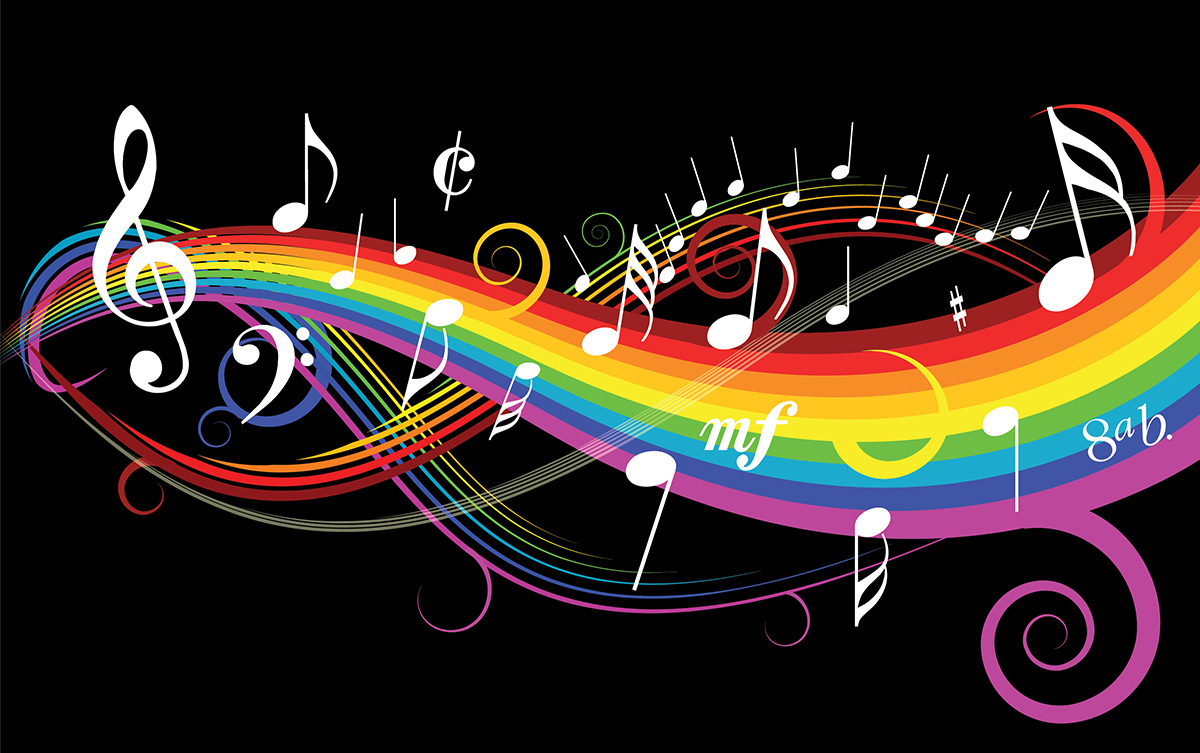
The full Washington Master Chorale will return for its annual holiday concert tradition with “Thine Own Sweet Light” on Friday, Dec. 19 and Sunday, Dec. 21 at St. Ann’s Catholic Church (D.C.) and Church of the Epiphany (D.C.).
The concert will feature the rich sounds of the 50-voice, a cappella chorus performing lush, seasonal choral music inspired by the theme of light. Highlights include Edvard Grieg’s “Ave Maris Stella,” Eric Whitacre’s “Lux Aurumque,” and Christopher Hoh’s “Holy, Holy, Holy is the Lord God of Hosts.” The program will also present a new work by Barcelona composer Josep Ollé i Sabaté, along with charming holiday folk songs and seasonal favorites.
For more details, visit the Washington Master Chorale website.
Music & Concerts
Queer mega stars (and allies) ready to take D.C. stages this fall
Watch LGBTQ icons light up stages across the DMV as they sing, dance, and drag their way through spectacular shows.

One of the best ways to welcome fall is by catching LGBTQ performers (and their allies) lighting up some of the D.C. area’s biggest stages. From country and pop to drag and rock, the season is packed with shows you won’t want to miss.
Maren Morris – The country, rock, and pop diva—known for hits like “The Bones” and for standing up against Nashville’s anti-LGBTQ voices—takes the stage at Wolf Trap (1551 Trap Rd, Vienna, Va.) on Friday, Sept. 12 at 8 p.m. Tickets start at $64.
RuPaul – The mother of modern drag and host of “RuPaul’s Drag Race” will spin a DJ set at Echostage (2135 Queens Chapel Rd NE) in Northeast D.C. on Sept. 20. Before RuPaul swaps wigs for headphones, Trade and Number 9 owner Ed Bailey will warm up the decks. For tickets and details visit echostage.com.
Conan Gray – The queer pop prince, celebrated for his Gen Z anthems like “Heather” and “Maniac,” brings his Wishbone Pajama Show to EagleBank Arena in Fairfax, VA, (4500 Patriot Cir) on Sept. 20 at 8 p.m. Tickets start at $113. For more info visit shop.conangray.com/pages/tour.
All Things Go Music Festival – With a lineup that includes Noah Kahan, Lucy Dacus, Kesha, Clairo, Doechii, and more, the beloved LGBTQ-friendly festival takes over Merriweather Post Pavilion (10475 Little Patuxent Pkwy, Columbia, Md.) Sept. 26–28. For tickets and details visit allthingsgofestival.com.
BERTHA: Grateful Drag – This unique tribute brings drag artistry and the sounds of the Grateful Dead to The Atlantis (2047 9th St NW) on Sept. 27. Tickets start at $47 at theatlantis.com.
Peach PRC – Rising Australian pop star and out lesbian, whose confessional tracks like “Perfect for You” and “Forever Drunk” have made her a queer TikTok darling, performs at The Atlantis on Sept. 29 at 6:30 p.m. The show is general admission only. Additional details are on theatlantis.com.
Addison Rae – The TikTok star-turned-pop princess, who’s crossed over into music with glossy hits like “Diet Pepsi” brings her sold out show to The Anthem (901 Wharf St., S.W.) on Sept. 30. Tickets are sold out, but resale options start around $80. For more info visit theanthemdc.com.
The Rocky Horror Picture Show 50th Anniversary – Celebrate the cult classic that’s been a queer midnight-movie staple for decades, with Barry Bostwick (a.k.a. Brad Majors) at the Warner Theatre (513 13th St., N.W.) on Oct. 2 at 8 p.m. Tickets start at $41 via Ticketmaster.
Chaka Khan, Patti LaBelle, Gladys Knight & Stephanie Mills – Four legends, one stage. Between Khan’s funk, LaBelle’s soul, Knight’s R&B, and Mills’ powerhouse vocals, this concert at Capital One Arena (601 F St NW) on Oct. 3 at 8 p.m. promises pure diva magic. Tickets start at $103. For more details visit capitalonearena.com.
Lorde – Joined by The Japanese House and Chanel Beads, the Grammy-winning New Zealand singer-songwriter behind “Royals” and “Solar Power” returns to The Anthem on Oct. 4 at 7 p.m. Lorde has long been embraced by queer fans for her dreamy pop and subversive lyrics. For more info visit theanthemdc.com.
Andy Bell (of Erasure) – The British queer rock icon, best known for synth-pop classics like “A Little Respect” and “Chains of Love,” brings his Ten Crowns Tour to the Lincoln Theatre (1215 U St., N.W.) on Friday, Oct. 17 at 8 p.m. Tickets are $90.45.
Doechii – The self-described queer “Swamp Princess”—and WorldPride 2025 headliner—continues her breakout year with the Live from the Swamp Tour at The Anthem on Oct. 21 at 8 p.m. Known for blending rap, R&B, and avant-garde performance art, Doechii is one to watch. Tickets start at $153.
Neon Trees – The out-and-proud Utah rockers behind “Everybody Talks” and “Animal” perform at the Lincoln Theatre on Friday, Oct. 24 at 8 p.m. Lead singer Tyler Glenn, who came out publicly in 2014, has become a strong queer voice in alternative rock. For tickets and info visit impconcerts.com.
Sasha Colby – The “RuPaul’s Drag Race” Season 15 winner strips down on the Stripped II Tour at the Warner Theatre on Nov. 2 at 8 p.m. Tickets available now on Ticketmaster.
Lola Young – The bisexual indie-pop sensation, whose raw songwriting has earned her millions of TikTok fans and multiple chart soaring hits visits The Anthem on Nov. 9 at 8 p.m. Tickets are still available.
Opera Lafayette
Featuring Mary Elizabeth Williams as Dido
+ Elijah McCormack, Chelsea Helm
Oct. 16, 7:30 p.m.
Sixth & I
PostClassical Ensemble
The Pale Blue Do: A Musical Voyage Inspired By Nature
Featuring National Geographic’s Enric Sala, Guest Curator
Wednesday, November 19, 7:30 p.m.
Terrace Theater
Washington Concert Opera
Starring Kate Lindsey, Theo Hoffman, John Moore, and Fran Daniel Laucerica
Nov. 23, 6 p.m.
Lisner Auditorium
Washington Master Chorale
An intimate a capella concert taking place in an architectural jewel, featuring cherished choral gems from Anglican and Catholic tradition and early American hymns. The concert will also present the world premiere of Christopher Hoh’s Holy, Holy, Holy is the Lord God of Hosts, and hymn singing featuring Robert Church, organist and choirmaster at St David’s.
Oct. 18, 7:30 p.m.
October 19, 5 p.m.
St. David’s Episcopal Church
Music & Concerts
Cyndi Lauper ready to have fun in Virginia
Superstar to bring final leg of farewell tour to Jiffy Lube Live
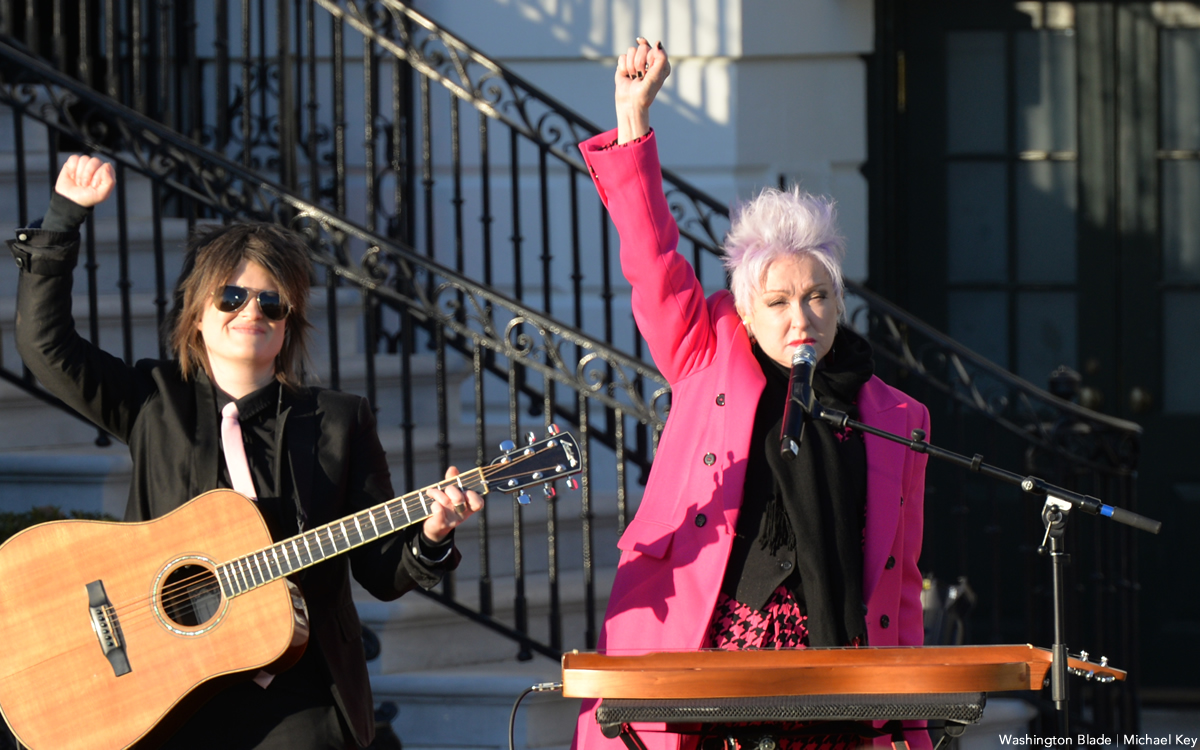
Superstar Cyndi Lauper will bring the final leg of her farewell tour “Girls Just Wanna Have Fun” to Bristow, Va., on Thursday, July 24 at Jiffy Lube Live.
Lauper’s international Farewell Tour – her first major headlining run in a decade – kicked off in North America last October, and included her first time ever headlining (and selling out) Madison Square Garden. Lauper’s performances have earned raves from the New York Times, Rolling Stone, Billboard, and many more, and surprise guests have included Chaka Khan, Sam Smith, and Hayley Williams. The tour just visited the U.K. and Europe, and will head to Australia and Japan in April.
Tickets are available on Live Nation’s website.
-

 Photos4 days ago
Photos4 days agoThe year in photos
-

 Sponsored3 days ago
Sponsored3 days agoSafer Ways to Pay for Online Performances and Queer Events
-

 District of Columbia2 days ago
District of Columbia2 days agoTwo pioneering gay journalists to speak at Thursday event
-

 a&e features2 days ago
a&e features2 days agoQueer highlights of the 2026 Critics Choice Awards: Aunt Gladys, that ‘Heated Rivalry’ shoutout and more

